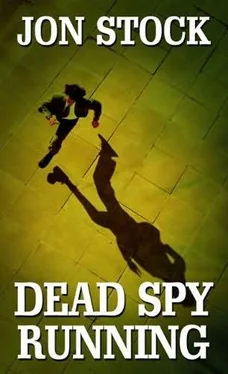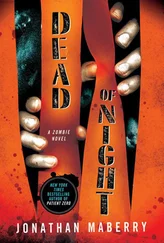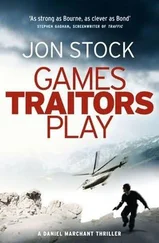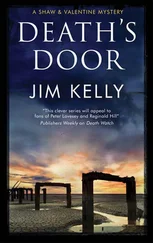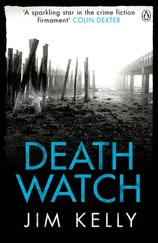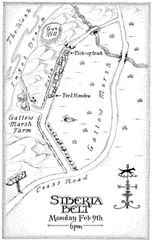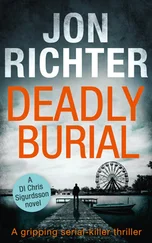Jon Stock - Dead Spy Running
Здесь есть возможность читать онлайн «Jon Stock - Dead Spy Running» — ознакомительный отрывок электронной книги совершенно бесплатно, а после прочтения отрывка купить полную версию. В некоторых случаях можно слушать аудио, скачать через торрент в формате fb2 и присутствует краткое содержание. Год выпуска: 2009, Издательство: St. Martin, Жанр: Триллер, на английском языке. Описание произведения, (предисловие) а так же отзывы посетителей доступны на портале библиотеки ЛибКат.
- Название:Dead Spy Running
- Автор:
- Издательство:St. Martin
- Жанр:
- Год:2009
- ISBN:нет данных
- Рейтинг книги:3 / 5. Голосов: 1
-
Избранное:Добавить в избранное
- Отзывы:
-
Ваша оценка:
- 60
- 1
- 2
- 3
- 4
- 5
Dead Spy Running: краткое содержание, описание и аннотация
Предлагаем к чтению аннотацию, описание, краткое содержание или предисловие (зависит от того, что написал сам автор книги «Dead Spy Running»). Если вы не нашли необходимую информацию о книге — напишите в комментариях, мы постараемся отыскать её.
Dead Spy Running — читать онлайн ознакомительный отрывок
Ниже представлен текст книги, разбитый по страницам. Система сохранения места последней прочитанной страницы, позволяет с удобством читать онлайн бесплатно книгу «Dead Spy Running», без необходимости каждый раз заново искать на чём Вы остановились. Поставьте закладку, и сможете в любой момент перейти на страницу, на которой закончили чтение.
Интервал:
Закладка:
‘How do you know I’m from India?’
‘I used to live there.’
‘Which place?’
‘Delhi. Chanakyapuri.’
‘Very nice,’ Pradeep said, moving his head from side to side, managing a faint smile. Talk of home seemed to give him strength.
‘All I remember is the yellow blossom of the laburnum trees. I was very young.’
For a few seconds their steps were synchronised, rising and falling together. They both noticed it, momentarily entranced. ‘Are we going to die?’ Pradeep asked.
‘No. We’re not.’
‘My home place is Kochi.’
‘Kerala?’
‘My wife, she is also from there. We have one son, living with us in Delhi. They will kill him if I don’t do this today.’
‘Who’s “they”?’
Pradeep didn’t answer. Instead, he pulled out a small photo from a pouch at the front of the belt and showed it to Marchant.
Marchant looked at the young face that smiled back at him. This hadn’t been a part of his calculations. Pradeep might have been a reluctant bomber, but he now had a motive to see it through. His heart sank. Pradeep had missed his target, the Ambassador, but he could still honour his word by blowing himself up at Tower Bridge to save his son. Marchant glanced at his watch: one hour thirty-nine minutes.
‘But you don’t want to go through with this, do you?’ he asked. ‘You don’t want to die.’ Before Pradeep could answer, Marchant’s phone started to ring. It was Colorado Springs.
Again, Marchant imagined himself from high above, the bridge looking even more like a child’s model than it did from the ground. He listened to the young American on the phone, calm and authoritative, talking to him, to Armstrong, to someone else. And then, at last, it was time to slow down.
‘If the GPS makes any sound at all, increase your speed immediately, do you copy that?’ the American asked.
‘Copy that.’
‘Now take it down slowly, sir. Your window is open. Two minutes and counting.’
Marchant looked at Pradeep, suddenly unsure of his cooperation. For so long he had wanted him to keep on running; now he was praying he would slow down. But Pradeep’s pace remained constant, his eyes looking straight ahead. If anything, he was growing stronger. He was hanging on until they reached the bridge.
‘Remember, you’ve got time to speed up again if the GPS doesn’t like it,’ the American said. ‘Ease it down now. One minute forty-five and counting.’
Marchant moved closer to Pradeep and grabbed his arm. ‘It’s OK, we can slow down. We can stop. We’ve done it.’ They were at the edge of the bridge, approaching the first tower, still not slowing. Marchant knew that tears were mixing with Pradeep’s sweat as he tried to struggle on, for his young son, to the middle of the bridge. But his legs were beginning to buckle, first one, then the other, and soon he was in Marchant’s arms, sobbing, as they slowed to a walking pace. Marchant glanced at his receiver to check their speed: it still said that they were running at eight minutes per mile.
Marchant never established the exact order of what happened next. He remembered two bomb disposal officers, weighed down with protective khaki clothing, running across from the far side of the bridge, shouting at him to remain where he was. And he later learnt that at the same time, somewhere in the skies above Heathrow, two passenger planes started their final approaches sooner than they should have, setting themselves on a collision course that was only averted by an extra-vigilant air traffic controller.
The double-tap gunshot that rang out on the bridge, jerking Pradeep’s head back, must have been fired just before the bomb disposal squad reached them. Marchant remembered holding Pradeep’s limp body for a second and then slumping down with him to the tarmac. The two dum-dum bullets had spread out inside Pradeep’s skull, rather than passing through it. The back of his head felt like moist moss.
The belt was cut free and disarmed in the subsequent blur, but as Marchant was led away in a cacophony of sirens, all he could recall thinking about was Pradeep’s son, and whether he would now be allowed to live.
4
Daniel Marchant looked out across the shallow valley and watched as a flock of Canada geese flew along the canal, rising from its surface to turn right towards the village. A faint mist hung above the water, streaked with blue smoke from the early-morning stoves of canal boats moored along the far bank. Beside the canal was the railway to London, and a small, three-carriage train was waiting in the station for the first commuters of the day. In the woods on the hillside beyond, a woodpecker was hammering in short bursts. Otherwise, there was stillness.
Marchant had slept only intermittently, despite his exhaustion, and he knew that another day of questioning lay ahead. At least he was now out of London, in a safe house somewhere in Wiltshire. After the marathon, an unmarked car had taken him from Tower Bridge to Thames House, where he had showered and changed into clothes brought over from his flat by Leila. He saw her briefly, gave back the mobile phone, but their conversation was stilted. The look on her face came as a surprise. He had been keen to meet, to thank her for helping him through the race, but he was grateful for her withdrawn manner; it had put him on guard.
It wasn’t that he had expected to be fêted as a hero, but neither had he thought he would be led down into the basement of MI5’s headquarters for hours of questioning in a small, airless room. A debrief in Legoland would have been more appropriate, given he was still on MI6’s payroll. But it was clear, from the moment he had arrived at Thames House, that another agenda was being followed. He just wasn’t sure exactly what it was.
His role in the marathon bomb plot was problematic for the intelligence community, he accepted that. It troubled him, too: why he had been there, why no one else had been suspicious of the belt. A have-a-go hero had saved the day, except that he wasn’t an ordinary member of the public, he was a suspended MI6 officer; an officer whose late father had been suspected of treason; a son who wanted to clear the family name.
He knew MI5 was behind the decision to suspend him, just as it had been the driving force behind his father’s removal as Chief of MI6, which had added an extra degree of tension to his interrogation in the basement.
‘You can see how it looks from our point of view,’ his interrogator was saying, as he walked around Marchant in the plain, whitewashed room, chewing gum. Marchant, sitting on the only chair, didn’t recognise the man, who called himself Wylie. Shortly after his father’s forced retirement, Marchant had been interviewed at Thames House by a panel of officers, but it hadn’t included this man. Wylie was in his late forties, flat-footed with thinning red hair, his skin pale and too dry. If he passed you in the street, Marchant thought, you would guess he was an overworked police officer, or an inner-city school-teacher, someone who saw more paperwork than daylight, knew his colleagues better than his wife.
‘Two men, running together, desperate to reach Tower Bridge for maximum publicity. One of them fresh from the subcontinent, strapped up with explosives. The other — ’ Wylie paused, as if his disdain for Marchant had suddenly overwhelmed him — ‘the other, a former member of the intelligence services with “issues”, making sure he reaches his target.’
‘Suspended, not former,’ Marchant said calmly. ‘His target was Turner Munroe, the American Ambassador.’ Wylie, Marchant knew, was employing a standard interrogation strategy: push the less plausible of your two main theories (ex-MI6 man with a grudge) as far as you can, and see how much of your more plausible theory (ex-MI6 man saves MI5’s skin) is validated by the interviewee’s answers. He’d learnt it at the Fort, with Leila.
Читать дальшеИнтервал:
Закладка:
Похожие книги на «Dead Spy Running»
Представляем Вашему вниманию похожие книги на «Dead Spy Running» списком для выбора. Мы отобрали схожую по названию и смыслу литературу в надежде предоставить читателям больше вариантов отыскать новые, интересные, ещё непрочитанные произведения.
Обсуждение, отзывы о книге «Dead Spy Running» и просто собственные мнения читателей. Оставьте ваши комментарии, напишите, что Вы думаете о произведении, его смысле или главных героях. Укажите что конкретно понравилось, а что нет, и почему Вы так считаете.
